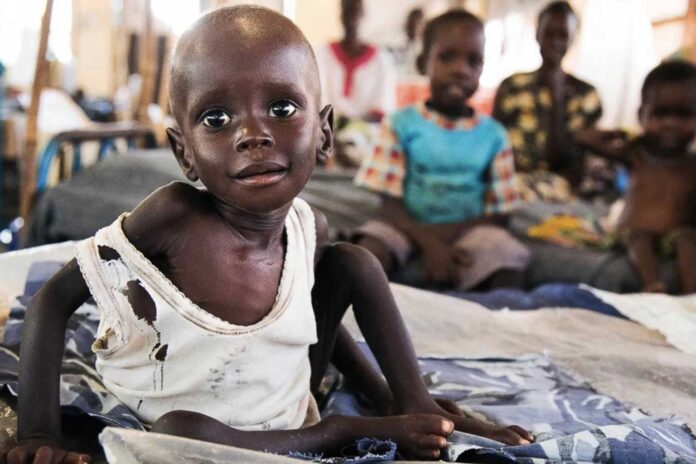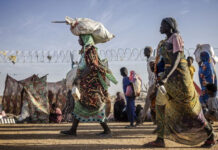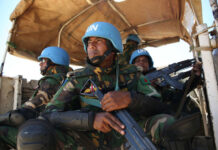The world’s largest humanitarian crisis, one that has lost all global attention – is now turning into a human catastrophe as Sudan slips into a deadly famine.
Amidst a 15-month long escalating civil war between warring militias, Sudan is on the brink as parts of North Darfur are witnessing famine, notably the Zamzam camp for internally displaced persons (IDPs), a recent international report by the UN World Food Program and the US Agency for International Development has stated.
The report classifies food insecurity into five phases, with the fifth phase indicating famine, which is defined as “at least one in five people or households having an extreme lack of food and facing starvation.” Based on this, it has declared that famine is now prevalent in parts of war-torn Sudan.
As the warnings escalate, experts describe the unfolding disaster as potentially eclipsing previous crises, including the catastrophic famine that gripped Somalia in 2011, which resulted in the tragic loss of approximately 250,000 lives, primarily children under five.
On the ground, the conflict in Sudan has crippled humanitarian efforts. Warring factions have effectively barred aid from reaching civilians in desperate need at camps like Zamzam, which is located approximately 12 kilometres south of El Fasher, capital of the North Darfur state. Zamzam camp is one of the largest IDP camps in Sudan, hosting an estimated 500,000 people.
The situation is extremely dire, with the worst fears of the international humanitarian community being realised, as combatants on both sides, use starvation as a method of war, manipulating delays and obstruction as a means to deepen the suffering of those fleeing violence.
The report details more than 320,000 people have been displaced since mid-April in El Fasher, with around 150,000 to 200,000 of them believed to have moved to Zamzam camp in search of security, basic services, and food since mid-May.
“The main drivers of famine in Zamzam camp are conflict and lack of humanitarian access, both of which can immediately be rectified with the necessary political will,” according to the report.
It added that “Restrictions on humanitarian access, including intentional impediments imposed by the active parties to the conflict, have severely restricted the capability of aid organisations to scale up their response efforts effectively.”
Sudan’s war erupted in April 2023, escalating tensions between two generals — the Sudanese Armed Forces and the Rapid Support Forces (RSF). The RSF, which originated from the infamous Janjaweed militias, has a gruesome history of violence and abuse and is currently laying siege to many parts of Darfur, blocking humanitarian efforts and attacking civilian infrastructure, including hospitals and camps.
Media reports indicate that over 10 million people have been displaced due to the ongoing violence since war began, leading Sudan to have the grim title of the world’s largest humanitarian crisis at present. The acute hunger plaguing much of the nation is a stark contrast to other recent conflicts, as the sheer scale of need outstrips available resources.
The crisis is further complicated by accusations of ‘external interference and patrons’, particularly by nations like the United Arab Emirates and Egypt. Geopolitics and regional powers are at play in Sudan, supporting opposing military factions in this conflict.
In a bid to de-escalate tensions, the US and Saudi Arabia have proposed ceasefire talks which are set to occur in Switzerland this month.
The RSF’s leadership has expressed willingness to participate, but Sudan’s military government maintains firm opposition to any negotiations outside the country, especially after the recent assassination attempt on General Abdel Fattah al-Burhan, head of the Sudanese Armed Forces.
As the conflict continues, it has become the predominant factor driving this new famine. The UN World Food Program has recommended that all means are exhaustively explored to reduce or resolve the underlying conflict between the parties.
Meanwhile, the international community remains primarily concerned about conflict in Ukraine and the Middle East, turning a blind eye to the unfolding human tragedy in the African nation.










